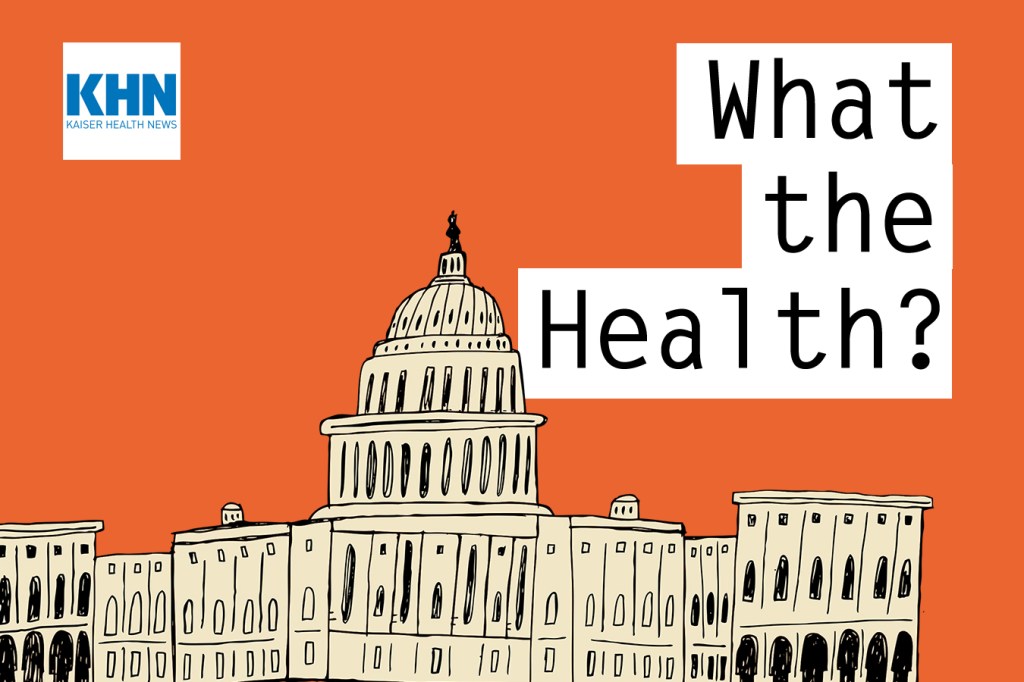Can’t see the audio player? Click here to listen on SoundCloud.
President Donald Trump keeps promising to unveil a comprehensive plan to replace the Affordable Care Act, but it keeps not appearing. However, this week he did order an expansion of telehealth for Medicare beneficiaries and a program to help struggling rural hospitals.
Meanwhile, the administration still lacks a comprehensive plan to fight the COVID-19 pandemic in the U.S., and Congress remains unable to agree on another round of COVID relief funding, despite broad agreement on the need.
Outside Washington, Missouri this week became the sixth state where voters approved an expansion of Medicaid under the Affordable Care Act over the objections of Republican governors and/or Republican-controlled legislatures.
This week’s panelists are Julie Rovner of Kaiser Health News, Alice Miranda Ollstein of Politico, Tami Luhby of CNN and Kimberly Leonard of Business Insider.
Among the takeaways from this week’s podcast:
- If a compromise over a federal relief package is not reached, Trump said he will issue executive orders to provide enhanced unemployment benefits and protections for people facing eviction. Even if he can do that, other parts of the stimulus plan — including money for states and local governments facing major deficits, schools, and testing and tracing programs — will likely be out of luck.
- Six states announced this week they are banding together to purchase quick-turnaround coronavirus tests as they try to increase the number of tests they can offer.
- States that have been using National Guard troops during the coronavirus emergency to help provide services are facing the prospect of having to pick up part of the cost for those service members. The mobilization was set to expire soon, but this week the administration announced it would extend the use of the National Guard, if states helped pay for it.
- No new health plan was offered by Trump despite his comments in an interview with Fox News anchor Chris Wallace two weeks ago that a plan would be unveiled by Aug. 2. Instead, the administration has rolled out a number of smaller initiatives, including proposals to lower prescription drug prices and extending telemedicine.
- The loosening of Medicare’s rules for telehealth during the pandemic has proved popular and may be hard to roll back. It has helped overcome shortages of medical professionals in rural areas and in mental health services. Nonetheless, federal officials and some health policy analysts suggest that increased use of digital medical appointments could expand the nation’s overall health bill. For example, if a patient has a virtual visit with the doctor who then says the patient needs to be seen in person, the doctor can collect fees for two visits.
- Among the big supporters of the Missouri measure to expand Medicaid was the health care industry, which spent heavily on the campaign.
- It’s second-quarter earnings season, and most health care companies are reporting good profits, despite the upheaval caused by the coronavirus. Still, they warn that they could take a hit in the third quarter.
Plus, for extra credit, the panelists recommend their favorite health policy stories of the week they think you should read too:
Julie Rovner: Vanity Fair’s “How Jared Kushner’s Secret Testing Plan ‘Went Poof Into Thin Air’,” by Katherine Eban
Alice Miranda Ollstein: The Atlantic’s “How the Pandemic Defeated America,” by Ed Yong
Kimberly Leonard: The New York Times’ “’The Biggest Monster’ Is Spreading. And It’s Not the Coronavirus,” by Apoorva Mandavilli
Tami Luhby: The Washington Post’s “Trump Keeps Promising an Overhaul of the Nation’s Health-Care System That Never Arrives,” by Anne Gearan, Amy Goldstein and Seung Min Kim
To hear all our podcasts, click here.
And subscribe to What the Health? on iTunes, Stitcher, Google Play, Spotify, or Pocket Casts.
This story was produced by Kaiser Health News, an editorially independent program of the Kaiser Family Foundation.
